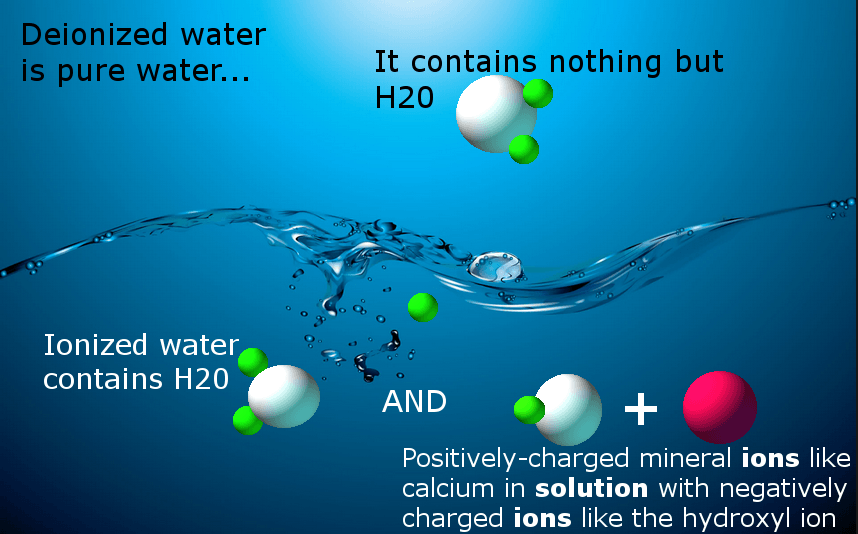
Deionized Water, also referred to as demineralized water, is water that has undergone a process to remove mineral ions and impurities, resulting in a highly pure form of water. It is characterized by its high purity, with extremely low levels of mineral ions and impurities. It typically has a neutral pH and lacks the taste and odor associated with tap water. Due to its purity, deionized water is an excellent solvent and is highly conductive, making it ideal for various scientific and industrial applications. (The featured image of this article is from LIFEIONIZERS)
Preparation Method
Deionized water is produced through several methods, including ion exchange, reverse osmosis, and distillation. Ion exchange involves passing water through resin beds that selectively remove ions, while reverse osmosis utilizes semi-permeable membranes to separate water molecules from dissolved solids. Distillation involves boiling water and collecting the condensed vapor, effectively removing impurities.

Main Usage
Deionized water finds extensive use across a wide range of applications. In laboratory settings, it is essential for preparing reagents, conducting experiments, and cleaning laboratory equipment due to its high purity and lack of contaminants. In industrial processes such as electronics manufacturing, deionized water is used in cooling systems, rinsing components, and producing semiconductor devices. It is also used in pharmaceutical production, cosmetics manufacturing, and power generation, among other applications.
Difference from Purified Water
Read this article about Purified Water.
The main difference between deionized water and purified water lies in the specific purification processes they undergo. Deionized water specifically targets the removal of mineral ions through deionization, while purified water may undergo various purification methods depending on the desired level of purity and the specific contaminants present. Deionized water is typically used in laboratory settings, industrial processes, and certain scientific applications where the presence of mineral ions can interfere with experiments or processes. Purified water, on the other hand, is more commonly used for drinking, pharmaceuticals, cosmetics, and other general applications where high purity is desired.
Final Note
Deionized water plays a crucial role in various industries and scientific fields due to its high purity and unique properties. It has a higher degree of purity than ordinary purified water.
